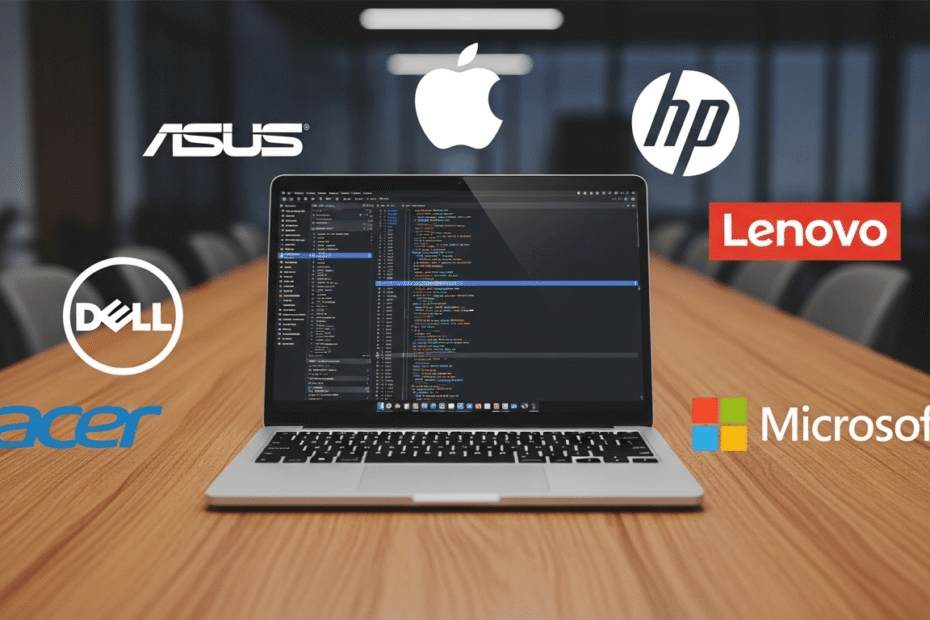Choosing a new laptop is a major investment, and nothing is more frustrating than a machine that fails you. If you’re asking, “which laptop brand is the most reliable?”, you need a definitive, data-backed answer, not just an opinion. This guide provides exactly that.
- TL;DR: The Most Reliable Laptop Brands
- What Truly Makes a Laptop Reliable? A Deeper Look
- Our Methodology: How We Determine Laptop Reliability
- The Most Reliable Laptop Brands of 2025, Ranked
- Beyond Failure Rates: Reliability vs. Total Cost of Ownership
- Red Flags: Factors That Signal Poor Reliability
- A Special Mention: The Unique Reliability of Chromebooks
- Frequently Asked Questions (FAQs)
- Beyond the Brand: Actionable Tips for Buying a Reliable Laptop
- Final Verdict: The Best Answer for “Which Laptop Brand is the Most Reliable”
TL;DR: The Most Reliable Laptop Brands
- Most Reliable Overall: Lenovo (Specifically the ThinkPad line)
- Best for Longevity & Resale Value: Apple
- Best for Customer Support: Dell
What Truly Makes a Laptop Reliable? A Deeper Look
Before we rank the brands, it’s crucial to understand what “reliability” actually means. It’s a combination of four key pillars:
- Build Quality and Materials: This is the physical durability of the laptop. A machine with a sturdy aluminum or magnesium-alloy chassis will inherently resist flex and damage better than one made of cheap plastic. Hinge durability is also a critical factor.
- Quality of Internal Components: A brand is only as good as its parts. Reliability here means using high-quality SSDs, RAM, and motherboards from reputable manufacturers that have low failure rates over thousands of hours of use.
- Software Stability: The most powerful hardware is useless if the software is buggy. A reliable laptop has a stable operating system with minimal pre-installed “bloatware” that can slow the system down and cause conflicts.
- Customer Support and Warranty: When something does go wrong, how a brand responds is part of its reliability score. A strong warranty with accessible, effective, and responsive technical support is a hallmark of a dependable brand.
Our Methodology: How We Determine Laptop Reliability
To provide an unbiased ranking, we didn’t just rely on our own experience. Instead, we synthesized data from multiple authoritative sources to evaluate each brand on key metrics that truly define reliability. Our analysis considers:
- Build Quality & Durability: The physical construction, materials used, and resistance to wear and tear.
- Component Failure Rates: Data on how often crucial components like the motherboard, battery, and hard drive fail over a 3-5 year period.
- Customer Satisfaction Scores: Analysis from large-scale surveys, such as those conducted by PCMag, to gauge real-world user experience.
- Quality of Technical Support: The efficiency, accessibility, and effectiveness of a brand’s warranty and customer service channels.
The Most Reliable Laptop Brands of 2025, Ranked
1. Lenovo
Lenovo has earned its top spot through decades of consistent, business-grade build quality. Its ThinkPad line, in particular, is legendary for its durability and is often considered the gold standard for professional reliability.
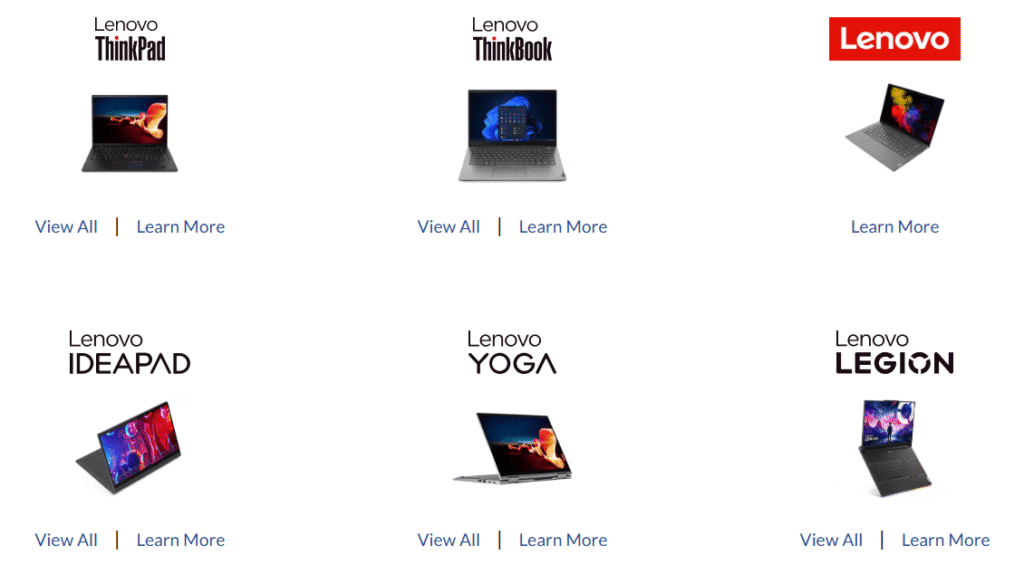
- Pros:
- Industry-leading keyboards that are both durable and comfortable.
- Exceptional durability, with many models passing military-grade (MIL-STD) testing.
- Consistently low failure rates for critical components.
- Cons:
- Designs outside the ThinkPad line can feel less premium.
- Pre-installed software (bloatware) can be an issue on consumer models.
- Best For: Business Professionals, Students, and anyone who values function over form.
- Recommended Model: Lenovo ThinkPad X1 Carbon Gen 12
2. Apple
Apple’s tight integration of hardware and software gives it a massive advantage in reliability. Because the company controls the entire ecosystem, MacBooks are incredibly optimized, leading to fewer software conflicts and a smoother long-term experience.
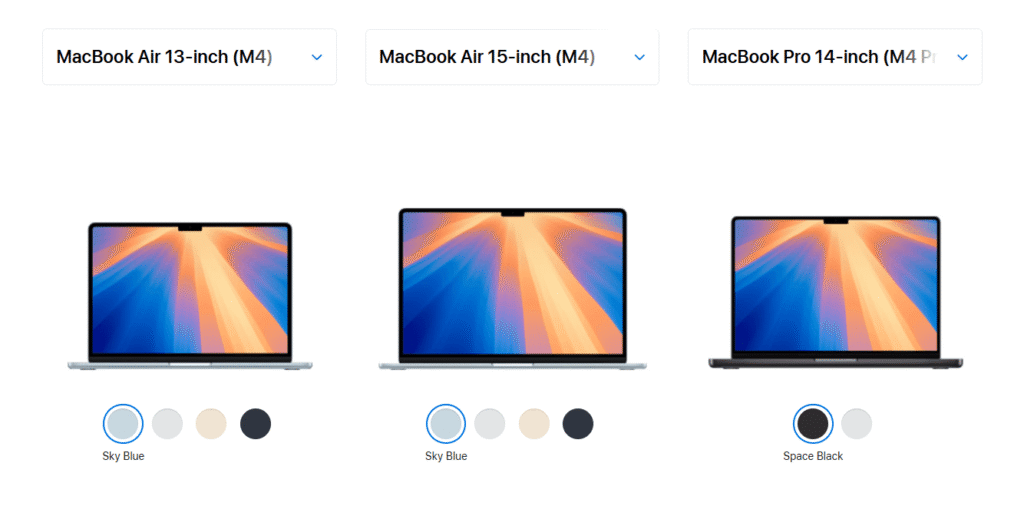
- Pros:
- Exceptional build quality with premium aluminum chassis.
- Excellent long-term performance and market-leading resale value.
- Best-in-class customer support via the Genius Bar.
- Cons:
- Premium price tag.
- Repairs can be very expensive if you don’t have AppleCare+.
- Best For: Creatives, Students, and users invested in the Apple ecosystem.
- Recommended Model: Apple MacBook Air (M3)
3. Dell
Dell has built a strong reputation for reliability, especially with its XPS and Latitude business lines. Furthermore, its comprehensive customer support and warranty options are among the best in the industry, making it a safe choice for many users.

- Pros:
- Wide range of reliable options at various price points.
- Top-tier customer support and on-site repair services.
- Premium build quality in its XPS and Latitude series.
- Cons:
- Performance can be inconsistent on lower-end Inspiron models.
- Battery life can be a mixed bag depending on the model.
- Best For: General Users, Business Professionals who need strong support.
- Recommended Model: Dell XPS 15
4. HP
HP has made significant strides in recent years, particularly with its Spectre and EliteBook series. These premium laptops offer a fantastic combination of stylish design, robust performance, and solid reliability, challenging the likes of Dell and Apple.

- Pros:
- Stunning designs with excellent build quality in premium lines.
- Impressive performance and innovative features.
- Cons:
- Reliability can vary significantly in their budget-friendly Pavilion series.
- Customer support experiences are often reported as inconsistent.
- Best For: Style-conscious Professionals, Multimedia Users.
- Recommended Model: HP Spectre x360 14
5. Asus
Asus is a brand that consistently delivers innovation and high performance. Known for its top-tier gaming laptops under the Republic of Gamers (ROG) brand, its consumer lines like Zenbook and Vivobook also offer dependable performance and solid build quality for the price.
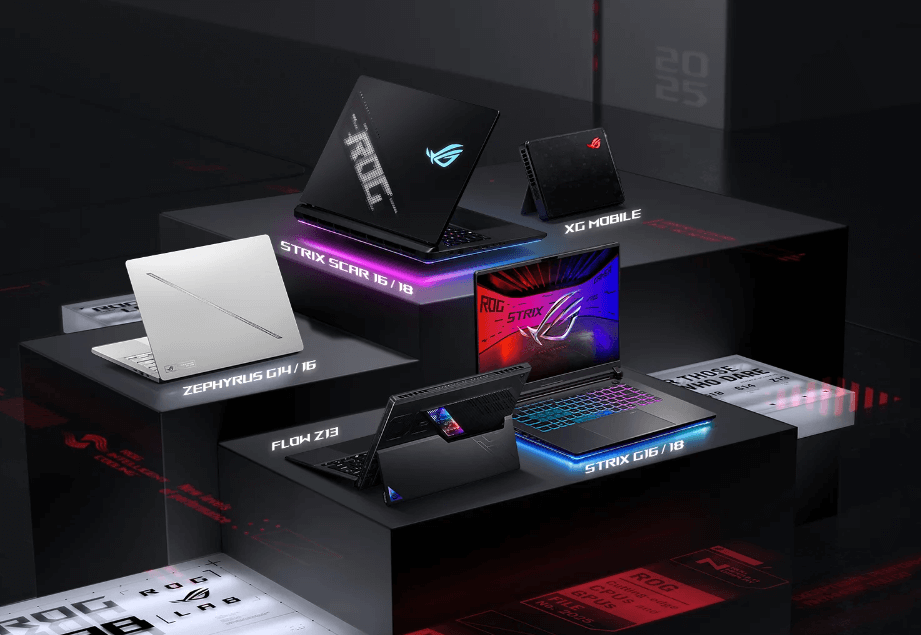
- Pros:
- Excellent performance-to-price ratio.
- Pioneers of innovative features like dual-screen laptops.
- Strong reputation for reliability in motherboards and other components.
- Cons:
- Design language can sometimes be too gamer-focused.
- Customer support can be less responsive than top competitors.
- Best For: Gamers, Tech Enthusiasts, and Value-conscious buyers.
- Recommended Model: Asus Zenbook 14 OLED
6. Acer
Acer has shed its reputation as a purely “budget” brand and now produces some of the most reliable and value-packed laptops on the market. While they may not always have the premium feel of an Apple or Dell, their failure rates are surprisingly low according to various industry reports.
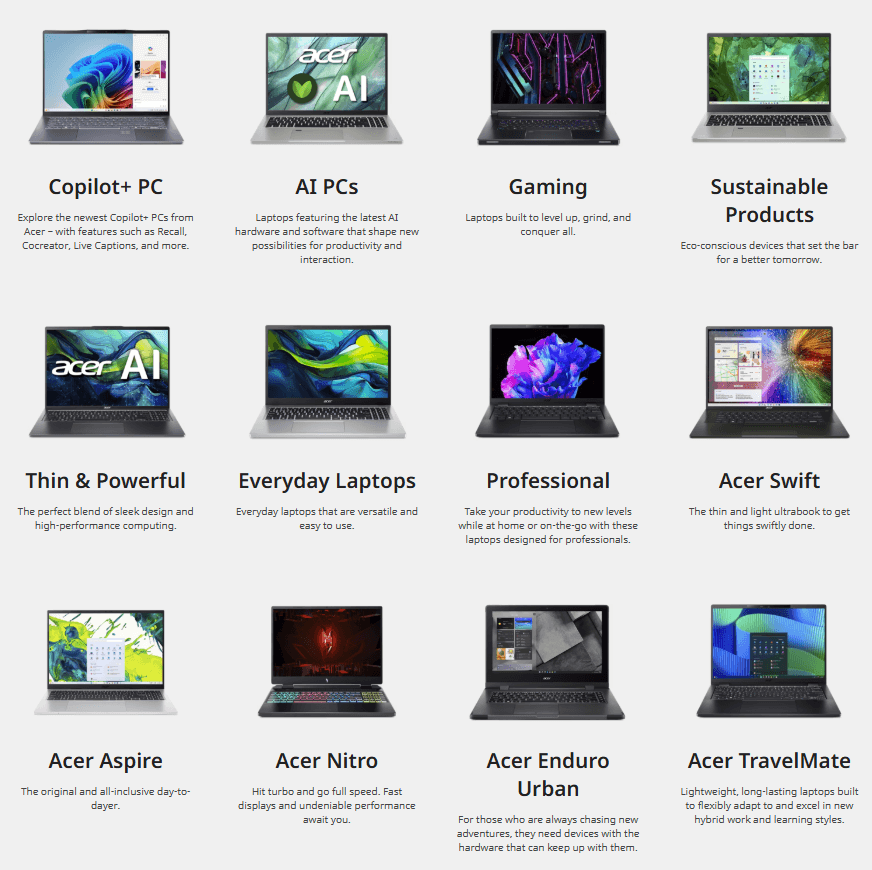
- Pros:
- Outstanding value for money.
- Surprisingly reliable components for the price point.
- Strong battery life in many of its Swift and Aspire models.
- Cons:
- Build materials often feel less premium (more plastic).
- Customer service is generally considered average.
- Best For: Students, Budget-conscious buyers, and everyday users.
- Recommended Model: Acer Swift Go 14
7. Microsoft
Microsoft’s Surface line offers a premium experience with a focus on build quality and seamless integration with Windows. While early Surface products had some reliability issues, recent generations have proven to be both durable and dependable.
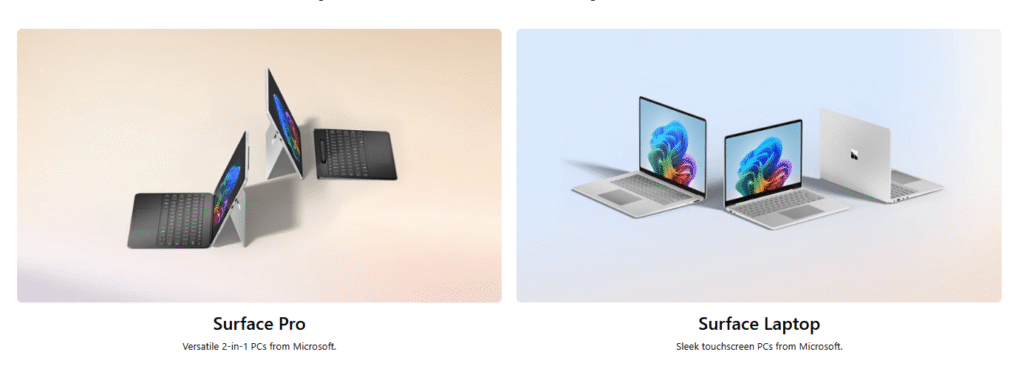
- Pros:
- Excellent build quality and premium materials.
- Best-in-class integration with the Windows operating system.
- Innovative 2-in-1 designs and high-resolution touchscreens.
- Cons:
- Can be more expensive than competitors with similar specs.
- Limited repairability can lead to high replacement costs.
- Best For: Professionals, Creatives, and anyone wanting the purest Windows experience.
- Recommended Model: Microsoft Surface Laptop 5
Beyond Failure Rates: Reliability vs. Total Cost of Ownership
A key fact that competitors often miss is that reliability isn’t just about how often a laptop breaks, but what it costs you over its entire lifespan. This concept is the Total Cost of Ownership (TCO).
- High Reliability, High TCO (e.g., Apple): MacBooks have very low failure rates. However, their components are often soldered to the motherboard, making repairs extremely difficult and expensive. A simple logic board failure outside of warranty can cost nearly as much as a new device.
- High Reliability, Lower TCO (e.g., Dell/Lenovo): Business-line laptops from Dell (Latitude) and Lenovo (ThinkPad) are also highly reliable. Crucially, they are often designed for serviceability. Parts like RAM, SSDs, and even batteries are more accessible and affordable to replace, drastically lowering the long-term cost if a failure does occur.
Considering the TCO provides a more complete picture of reliability, especially for budget-conscious buyers.
Red Flags: Factors That Signal Poor Reliability
Even a top brand can produce a poor laptop. When shopping, watch out for these red flags that often indicate a less reliable machine:
- Excessive Chassis Flex: If you can easily bend or twist the laptop’s body or screen, it’s a sign of poor build quality.
- Overwhelmingly Negative User Reviews: Look for patterns in user reviews on retail sites. If dozens of users complain about the same issue (e.g., a faulty hinge, Wi-Fi card failures), take it seriously.
- A Very Short Standard Warranty: A 90-day warranty signals a lack of confidence from the manufacturer in its own product. A 1-year warranty is the minimum standard.
- Poor Keyboard Quality: A mushy or unresponsive keyboard is often an early indicator of corner-cutting on overall component quality.
A Special Mention: The Unique Reliability of Chromebooks
For users with specific needs, Chromebooks represent a uniquely reliable category. Their reliability stems from the simplicity of Chrome OS.
- Software Simplicity: With no complex drivers, registry, or legacy programs, the potential for software-related failures is almost zero. The OS is less susceptible to viruses and malware.
- Lightweight Operation: Chrome OS is less demanding on hardware, meaning components like the CPU and RAM are under less stress, which can contribute to a longer lifespan.
Brands like Acer, HP, and Lenovo all produce excellent Chromebooks. If your work is primarily web-based (email, documents, streaming), a Chromebook is one of the most stable and trouble-free computing options available.
Laptop Reliability: 2025 Brand Comparison
| Brand | Reliability Score (1-10) | Best For | Key Strength |
| Lenovo | 9.5 | Business | Build Quality |
| Apple | 9.3 | Longevity & Creatives | Hardware/Software Eco |
| Dell | 9.0 | General Use & Support | Customer Service |
| HP | 8.7 | Style & Performance | Premium Design |
| Asus | 8.5 | Gaming & Value | Performance |
| Acer | 8.4 | Budget | Value for Money |
| Microsoft | 8.2 | Windows Experience | Build & Integration |
Frequently Asked Questions (FAQs)
Q: Which laptop brand lasts the longest?
A: Generally, Apple’s MacBooks tend to last the longest. Their aluminum unibody construction is exceptionally durable, and Apple provides software updates for many years, keeping the machines functional and secure long after purchase.
Q: Does a more expensive laptop mean it’s more reliable?
A: Not always, but there is a strong correlation. More expensive laptops, like a Lenovo ThinkPad or Dell XPS, use higher-quality materials and undergo more rigorous testing than budget models. This investment often translates to a longer, more reliable lifespan.
Q: How can I make my laptop last longer?
A: Regardless of the brand, you can extend your laptop’s life by keeping its software updated, ensuring proper ventilation to avoid overheating, cleaning the keyboard and vents regularly, and protecting the battery by not leaving it plugged in at 100% charge constantly.
Beyond the Brand: Actionable Tips for Buying a Reliable Laptop
Remember, brand reliability is a fantastic starting point, but the specific model matters most. Use this final checklist to make a smart choice:
- Prioritize Business-Grade Lines: A consumer-grade Dell Inspiron is built differently than a business-grade Dell Latitude. For any brand, their business models (Latitude, ThinkPad, EliteBook) are engineered for higher durability.
- Read and Watch Model-Specific Reviews: Once you’ve chosen a brand and model, search for long-term reviews of that exact model. This will reveal quirks and flaws that aren’t apparent at first.
- Consider the Warranty: A 2- or 3-year warranty, especially one with on-site service, is a powerful investment in peace of mind.
Final Verdict: The Best Answer for “Which Laptop Brand is the Most Reliable”
After analyzing the data and weighing the pros and cons, Lenovo stands out as the most reliable laptop brand for the majority of users in 2025. Its unwavering focus on build quality and durability in the ThinkPad series provides a level of confidence that is hard to beat. However, if you prioritize longevity and seamless user experience, Apple is a close and highly recommended second.
Ultimately, the answer to which laptop brand is the most reliable depends on balancing your specific needs with a brand’s proven track record.
We hope this guide has helped you make an informed decision! What has your experience been? Let us know in the comments below.
IT Security / Cyber Security Experts.
Technology Enthusiasm.
Love to read, test and write about IT, Cyber Security and Technology.
The Geek coming from the things I love and how I look.

